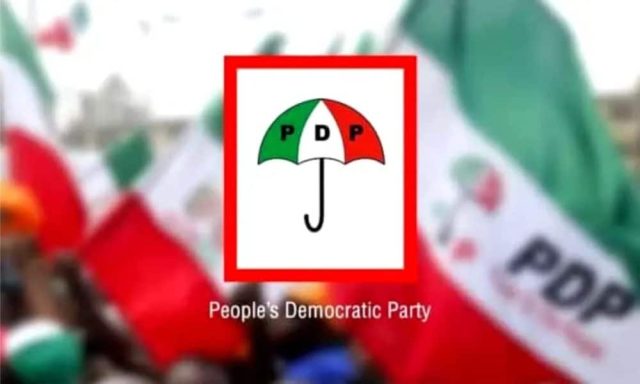The future of the Peoples Democratic Party (PDP) is facing renewed scrutiny as more political figures align with the emerging opposition coalition led by the African Democratic Congress (ADC).
The coalition, which has drawn support from across party lines, has sparked public debate about whether Nigeria’s former ruling party is approaching political irrelevance.
Commentary from supporters and critics has intensified following recent defections and internal divisions within the PDP. Bashir Ahmad, a former media aide to ex-President Muhammadu Buhari, stated on social media, “PDP has been buried with the rise of the ADC movement.”
In a similar tone, lawyer and activist Deji Adeyanju said, “PDP is finally dead.”
Founded in 1998, the PDP dominated Nigerian politics for 16 years and produced three presidents between 1999 and 2015. In 2008, its then-National Chairman Vincent Ogbulafor declared that the party would govern for 60 uninterrupted years. However, since losing power to the All Progressives Congress (APC) in 2015, the PDP has struggled with internal crises, leadership disputes, and growing defections.
Kabiru Danladi, a lecturer at Ahmadu Bello University, Zaria, argued that the party has lost its structure and political relevance. “Today, what’s left of the PDP is just a patchwork of retreating political actors. Governors are defecting. Their 2023 vice-presidential candidate (Ifeanyi Okowa) has walked away. State-level structures are hollow. Internal leadership is fractured, and they lack any unifying idea to rally around. What does all of this tell us? The PDP isn’t in decline—it’s defunct,” Mr. Danladi wrote in an April opinion article.
Some voices within the PDP disagree with this outlook. Kola Ologbondiyan, a former spokesperson of the party, said, “The PDP is a strong institution, and institutions don’t die.” He acknowledged the impact of defections and internal conflict but maintained that the party can survive if members resolve their disputes.
Although several senior figures have joined the ADC-led coalition, none of the PDP’s sitting governors have defected. In Nigerian politics, governors are often seen as critical power brokers due to their control over state resources and influence within party structures. In April, the PDP Governors’ Forum resolved not to participate in any merger or coalition but said they were open to parties joining the PDP to challenge the APC.
Despite this resolution, the governors of Delta and Akwa Ibom states later defected to the APC. Reports also suggest that two more PDP governors may follow suit.
Reacting to the party’s troubles, Lagos PDP leader Bode George dismissed the notion that the PDP is finished. In a television interview, he said, “Those who think PDP is dead are dreaming.” He likened the party to an Iroko tree, stating, “Even if the trunk looks dry, the roots are still deep and intact.” He called for internal reconciliation, saying party members must “come back, shut the door, speak some home truths, debate, and unite.”
Political analyst and journalist Lekan Ige echoed this view but stressed the urgency of action. “They still have governors, senators, and House of Representatives members at both the national and state levels, so the party is still viable,” he said. However, he emphasized that much depends on the outcome of the party’s convention scheduled for later this year.
The PDP’s Acting National Chairman, Umar Damagum, is expected to complete his tenure by year-end. The party is due to elect a new executive leadership ahead of the 2026–2027 general election cycle.
“Seventy-five per cent of PDP’s internal problems can be solved if they hold the convention,” Ige added. “They must do everything possible to hold it, elect new leaders, and from there, I believe they can start to rebuild what remains of the party.”
The rise of the ADC-led coalition continues to shape political discourse ahead of the next election, raising questions about the PDP’s capacity to adapt or fade.







